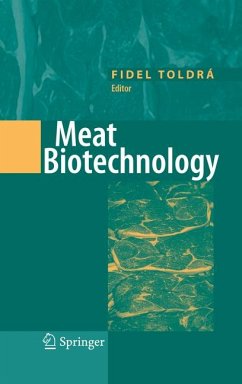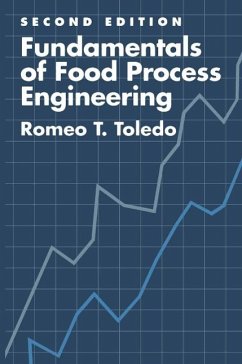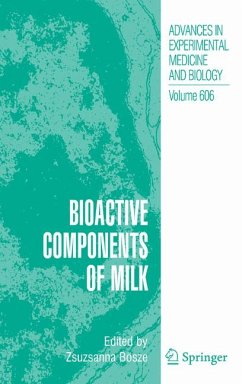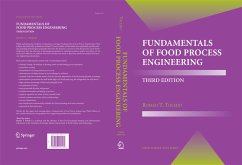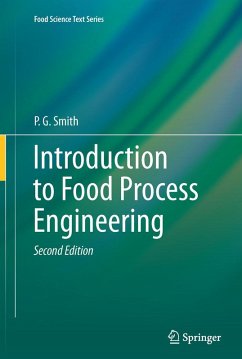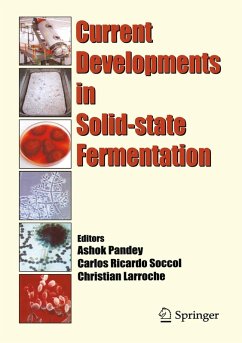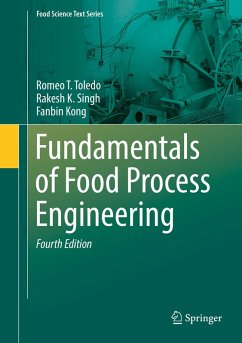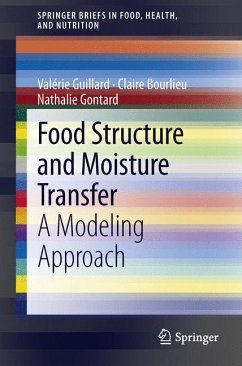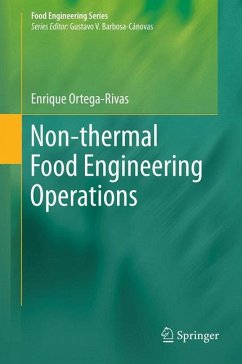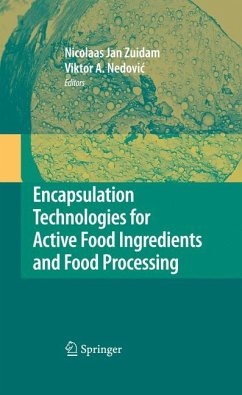
Encapsulation Technologies for Active Food Ingredients and Food Processing (eBook, PDF)
Versandkostenfrei!
Sofort per Download lieferbar
112,95 €
inkl. MwSt.
Weitere Ausgaben:

PAYBACK Punkte
56 °P sammeln!
Consumers prefer food products that are tasty, healthy, and convenient. Encapsulation is an important way to meet these demands by delivering food ingredients at the right time and right place. For example, encapsulates may allow flavor retention, mask bad tasting or bad smelling components, stabilize food ingredients, and increase their bioavailability. Encapsulation may also be used to immobilize cells or enzymes in the production of food materials or products, such as fermentation or metabolite production.This book provides a detailed overview of the encapsulation technologies available for...
Consumers prefer food products that are tasty, healthy, and convenient. Encapsulation is an important way to meet these demands by delivering food ingredients at the right time and right place. For example, encapsulates may allow flavor retention, mask bad tasting or bad smelling components, stabilize food ingredients, and increase their bioavailability. Encapsulation may also be used to immobilize cells or enzymes in the production of food materials or products, such as fermentation or metabolite production.
This book provides a detailed overview of the encapsulation technologies available for use in food products, food processing, and food production. The book aims to inform those who work in academia or R&D about both the delivery of food compounds via encapsulation and food processing using immobilized cells or enzymes. The structure of the book is according to the use of encapsulates for a specific application. Emphasis is placed on strategy, since encapsulation technologies may change. Most chapters include application possibilities of the encapsulation technologies in specific food products or processes.
The first part of the book reviews general technologies, food-grade materials, and characterization methods for encapsulates.
The second part discusses encapsulates of active ingredients (e.g., aroma, fish oil, minerals, vitamins, peptides, proteins, probiotics) for specific food applications.
The last part describes immobilization technologies of cells and enzymes for use within food fermentation processes (e.g., beer, wine, dairy, meat), and food production (e.g., sugar conversion, production of organic acids or amino acids, hydrolysis of triglycerides).
Edited by two leading experts in the field, Encapsulation Technologies for Food Active Ingredients and Food Processing will be a valuable reference source for those working in the academia or food industry. The editors work in both industry oracademia, and they have brought together in this book contributions from both fields.
This book provides a detailed overview of the encapsulation technologies available for use in food products, food processing, and food production. The book aims to inform those who work in academia or R&D about both the delivery of food compounds via encapsulation and food processing using immobilized cells or enzymes. The structure of the book is according to the use of encapsulates for a specific application. Emphasis is placed on strategy, since encapsulation technologies may change. Most chapters include application possibilities of the encapsulation technologies in specific food products or processes.
The first part of the book reviews general technologies, food-grade materials, and characterization methods for encapsulates.
The second part discusses encapsulates of active ingredients (e.g., aroma, fish oil, minerals, vitamins, peptides, proteins, probiotics) for specific food applications.
The last part describes immobilization technologies of cells and enzymes for use within food fermentation processes (e.g., beer, wine, dairy, meat), and food production (e.g., sugar conversion, production of organic acids or amino acids, hydrolysis of triglycerides).
Edited by two leading experts in the field, Encapsulation Technologies for Food Active Ingredients and Food Processing will be a valuable reference source for those working in the academia or food industry. The editors work in both industry oracademia, and they have brought together in this book contributions from both fields.
Dieser Download kann aus rechtlichen Gründen nur mit Rechnungsadresse in A, B, BG, CY, CZ, D, DK, EW, E, FIN, F, GR, HR, H, IRL, I, LT, L, LR, M, NL, PL, P, R, S, SLO, SK ausgeliefert werden.




